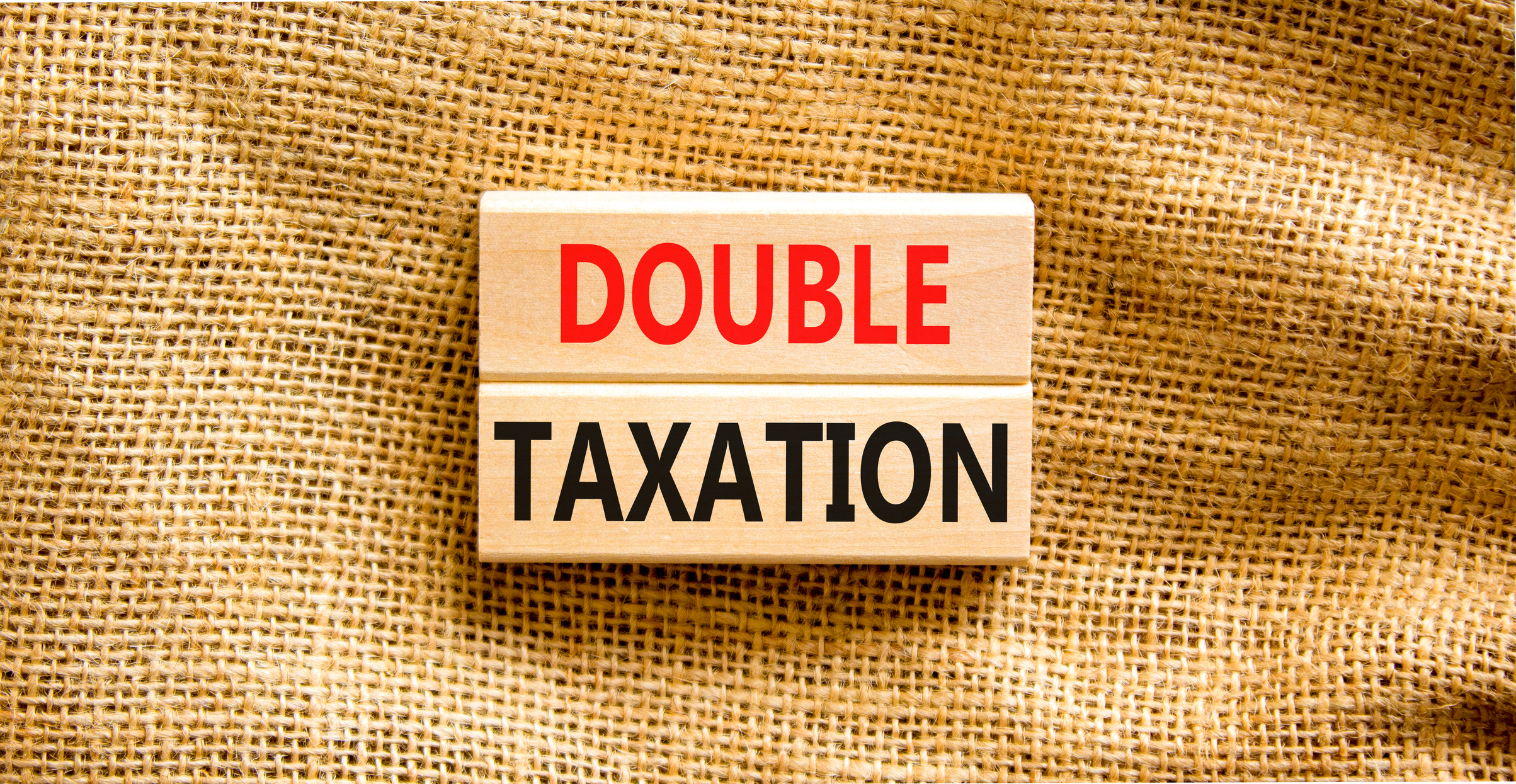Idaho Tax Guide
Explore Idaho's state tax rates for income, sales, property, retirement, and more. Learn how Idaho compares nationwide.

Rocky Mengle

Profit and prosper with the best of Kiplinger's advice on investing, taxes, retirement, personal finance and much more. Delivered daily. Enter your email in the box and click Sign Me Up.
You are now subscribed
Your newsletter sign-up was successful
Want to add more newsletters?

Delivered daily
Kiplinger Today
Profit and prosper with the best of Kiplinger's advice on investing, taxes, retirement, personal finance and much more delivered daily. Smart money moves start here.

Sent five days a week
Kiplinger A Step Ahead
Get practical help to make better financial decisions in your everyday life, from spending to savings on top deals.

Delivered daily
Kiplinger Closing Bell
Get today's biggest financial and investing headlines delivered to your inbox every day the U.S. stock market is open.

Sent twice a week
Kiplinger Adviser Intel
Financial pros across the country share best practices and fresh tactics to preserve and grow your wealth.

Delivered weekly
Kiplinger Tax Tips
Trim your federal and state tax bills with practical tax-planning and tax-cutting strategies.

Sent twice a week
Kiplinger Retirement Tips
Your twice-a-week guide to planning and enjoying a financially secure and richly rewarding retirement

Sent bimonthly.
Kiplinger Adviser Angle
Insights for advisers, wealth managers and other financial professionals.

Sent twice a week
Kiplinger Investing Weekly
Your twice-a-week roundup of promising stocks, funds, companies and industries you should consider, ones you should avoid, and why.

Sent weekly for six weeks
Kiplinger Invest for Retirement
Your step-by-step six-part series on how to invest for retirement, from devising a successful strategy to exactly which investments to choose.
Navigating the complexities of state taxes can be daunting, but understanding Idaho's tax landscape is essential for residents and newcomers alike.
In this guide, we'll explore key components of The Gem State's tax system, from income and sales taxes to property taxes and retirement benefits.
Idaho state tax: Overview
When it comes to sales tax, Idaho keeps things relatively low compared to the rest of the country. The state recently switched to a flat income tax rate and doesn't tax Social Security.
From just $107.88 $24.99 for Kiplinger Personal Finance
Become a smarter, better informed investor. Subscribe from just $107.88 $24.99, plus get up to 4 Special Issues

Sign up for Kiplinger’s Free Newsletters
Profit and prosper with the best of expert advice on investing, taxes, retirement, personal finance and more - straight to your e-mail.
Profit and prosper with the best of expert advice - straight to your e-mail.
But Idaho is one of the few states that still taxes groceries.
Still, alcohol and tobacco taxes are lower than what you’ll find in many other states, and property taxes in the Gem State are also well below the national average.
In the news: Idaho parents with children enrolled in a private or homeschool may be eligible for a new refundable tax credit.
For more information, see Idaho Tax Credit Subsidizing Private School is Law: What You Need to Know.
[Data for this state tax guide was gathered from several sources including the U.S. Census Bureau, the state’s government website, the Sales Tax Handbook, and the Tax Foundation. Property taxes are cited as a rate percentage rather than the assessed value.]
Idaho income tax

Idaho has a flat income tax rate of 5.8%, according to the Tax Foundation.
Idaho retirement taxes
Idaho taxes most types of retirement income and has a flat tax rate. However, there are no estate or inheritance taxes in Idaho.
- Social Security: Not taxable
- Pensions: Partially taxable (Some military and government pensions might qualify for an exemption)
- 401(k) and IRA Distributions: Taxable
Idaho tax on retirement benefits: Social Security benefits and Railroad Retirement benefits are not taxed by the state.
If age 65 or older (62 or older if you have a disability), you may be able to deduct all or part of distributions from the following retirement plans.
- Military Retirement
- Civil Service Retirement (eligibility is dependent on account number)
- Idaho Firemen's Retirement Fund
- Policemen's Retirement Fund of Idaho City
Idaho sales tax

Idaho's state sales tax rate is 6%. Localities (typically resort communities) can add as much as 3%, but the average combined rate is just 6.03%, according to the Tax Foundation.
- Groceries: Taxable
- Clothing: Taxable
- Prescription drugs: Exempt
How much are property taxes in Idaho?

In Idaho, the average effective property tax rate is 0.47%.
Source: Tax Foundation
Idaho Property Tax Breaks for Retirees
Property Tax Reduction: For 2025, some Idaho residents may qualify for a property tax reduction of up to $1,500. To qualify, homeowners must meet the following criteria.
- Be 65 or older (see below for exceptions)
- Had a income at a certain threshold or less after deducting medical expenses
- You must have lived at the property before April 15, 2025
- The property must be your primary residence
- You must have a current homestead exemption
Some individuals under age 65 may qualify for the property tax reduction. These include people who are blind, widowed, or have a disability. Additionally, you may qualify if you were ever a POW or hostage. Children under 18 without a mother or without a father may also qualify.
Idaho gas tax

Gasoline: $0.32 per gallon.
Diesel: $0.32 per gallon.
Source: Sales Tax Handbook
Idaho alcohol and tobacco taxes
Product | Tax Amount |
|---|---|
Cigarettes | $0.57 per pack |
Other Tobacco Products | 40% of wholesale price |
Source: Sales Tax Handbook
Product | Tax Amount |
|---|---|
Wine | $0.45 per gallon |
Beer | $0.15 per gallon |
Liquor | state-controlled |
Source: Sales Tax Handbook
Idaho estate and inheritance taxes
Idaho is one of the states with no estate or inheritance taxes.
Related
Profit and prosper with the best of Kiplinger's advice on investing, taxes, retirement, personal finance and much more. Delivered daily. Enter your email in the box and click Sign Me Up.

Katelyn has more than 6 years of experience working in tax and finance. While she specialized in tax content while working at Kiplinger from 2023 to 2024, Katelyn has also written for digital publications on topics including insurance, retirement, and financial planning and had financial advice commissioned by national print publications. She believes knowledge is the key to success and enjoys providing content that educates and informs.
-
 Quiz: Do You Know How to Avoid the "Medigap Trap?"
Quiz: Do You Know How to Avoid the "Medigap Trap?"Quiz Test your basic knowledge of the "Medigap Trap" in our quick quiz.
-
 5 Top Tax-Efficient Mutual Funds for Smarter Investing
5 Top Tax-Efficient Mutual Funds for Smarter InvestingMutual funds are many things, but "tax-friendly" usually isn't one of them. These are the exceptions.
-
 AI Sparks Existential Crisis for Software Stocks
AI Sparks Existential Crisis for Software StocksThe Kiplinger Letter Fears that SaaS subscription software could be rendered obsolete by artificial intelligence make investors jittery.
-
 How to Open Your Kid's $1,000 Trump Account
How to Open Your Kid's $1,000 Trump AccountTax Breaks Filing income taxes in 2026? You won't want to miss Form 4547 to claim a $1,000 Trump Account for your child.
-
 In Arkansas and Illinois, Groceries Just Got Cheaper, But Not By Much
In Arkansas and Illinois, Groceries Just Got Cheaper, But Not By MuchFood Prices Arkansas and Illinois are the most recent states to repeal sales tax on groceries. Will it really help shoppers with their food bills?
-
 7 Bad Tax Habits to Kick Right Now
7 Bad Tax Habits to Kick Right NowTax Tips Ditch these seven common habits to sidestep IRS red flags for a smoother, faster 2026 income tax filing.
-
 New Plan Could End Surprise Taxes on Social Security 'Back Pay'
New Plan Could End Surprise Taxes on Social Security 'Back Pay'Social Security Taxes on Social Security benefits are stirring debate again, as recent changes could affect how some retirees file their returns this tax season.
-
 Living in One State, Working in Another: How to Avoid a Tax Season Headache
Living in One State, Working in Another: How to Avoid a Tax Season HeadacheState Tax Living and working in two states can take a heavy toll on your paycheck and give you a headache come tax time. Here's what to know.
-
 10 Cheapest Places to Live in Colorado
10 Cheapest Places to Live in ColoradoProperty Tax Looking for a cozy cabin near the slopes? These Colorado counties combine reasonable house prices with the state's lowest property tax bills.
-
 New Gambling Tax Rule Impacts Super Bowl 2026 Bets
New Gambling Tax Rule Impacts Super Bowl 2026 BetsTaxable Income When Super Bowl LX hype fades, some fans may be surprised to learn that sports betting tax rules have shifted.
-
 Should You Do Your Own Taxes This Year or Hire a Pro?
Should You Do Your Own Taxes This Year or Hire a Pro?Taxes Doing your own taxes isn’t easy, and hiring a tax pro isn’t cheap. Here’s a guide to help you figure out whether to tackle the job on your own or hire a professional.